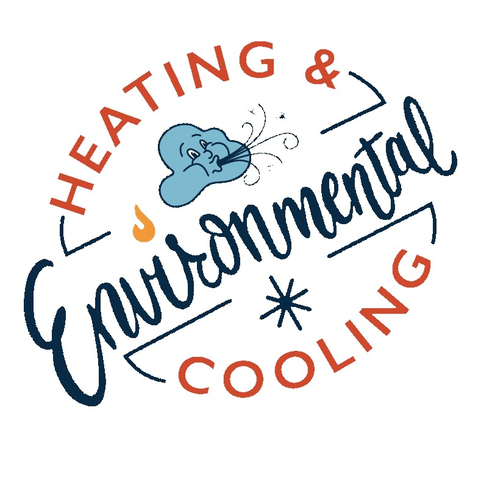Indoor Air Quality in Paola, KS
Modern Americans spend up to 90% of their lives indoors, and these days, most of that time is spent at home. Homeowners and their families tend to notice pretty quickly when there’s something wrong with their home heating or cooling systems, but they don’t always pay attention to another equally important factor: indoor air quality (IAQ).
What Is IAQ?
IAQ refers to the quality of air in or around homes and other buildings. A home with high levels of airborne pollutants has a low IAQ, while one that is comfortable, clean, and largely free from contaminants has a high IAQ. Unfortunately, airborne pollutants are far more common than most Americans think. Without the help of an Indoor Air Quality service, most households rank poorly on this health metric.
Why Does IAQ Matter?
Air quality has a direct impact on human health. Even if there are no noticeable signs of poor IAQ, such as unpleasant odors, all those airborne particles can still take a potentially devastating toll. Indoor air pollution can cause or contribute to a range of symptoms and conditions, including:
-
- Respiratory problems
-
- Flu-like illness
-
- Headaches
-
- Fatigue
-
- Cancer
-
- Heart disease
-
- And other serious, chronic conditions
Some people are more susceptible to the impacts of indoor pollution than others. Children, the elderly, and people with underlying allergies, asthma, or other respiratory conditions may be the first to notice related health impacts. However, everyone spending time in the house could still suffer as a result of poor IAQ.
Common Sources of Indoor Air Pollution
Airborne pollutants and contaminants come from sources both inside and outside the home. Building materials in older homes may contain asbestos, lead, or formaldehyde. Chemical cleaning products often release volatile organic compounds (VOCs). Excessive moisture can lead to mold and mildew growth, and even residents’ behaviors, such as smoking indoors or keeping pets, can play a role.
How an IAQ Service Can Help
There’s some good news about IAQ. The same experts who provide heating and Cooling Services often offer air quality testing and whole-home solutions for alleviating indoor pollution pressures, as well. There are four primary ways to improve IAQ:
- Install an Air Filtration System
There are all kinds of air filtration systems. Some are designed to operate independently to reduce contaminants from individual rooms, while others improve air quality throughout the whole home. Homeowners who want to upgrade to whole-home air filtration systems can enlist the help of their Air Conditioning service. A customer service representative will be happy to discuss options, such as HEPA filters, media air filters, and electronic air cleaners.
- UV Light Systems
Some wavelengths of UV light have the capacity to stop mold, viruses, and bacteria in their tracks. Most germicidal UV light systems designed for home use can be installed in the home’s existing ductwork. As the heating and cooling systems move forced air throughout the home, it passes under the UV lights and comes out nearly pathogen-free.
- Humidifiers and Dehumidifiers
Improving IAQ isn’t just about filtering particles and killing germs. It’s also crucial to maintain optimal humidity levels throughout the year. In the summer, the relative humidity inside of homes tends to rise, which creates an environment conducive to mold growth and spread.
In the winter, it drops precipitously, which can increase residents’ risks of spreading respiratory infections. Asthma and allergy symptoms may also worsen in the winter without a humidification system in place. Whole-home humidifiers and dehumidifiers treat the air routed to every room of the home to reduce health risks and increase personal comfort.
- Improved Ventilation Systems
Modern, energy-efficient homes are well-sealed to prevent unwanted heat transfer. Unfortunately, those extra layers of protection against the elements can also trap stagnant air inside and make it harder to balance humidity levels. An IAQ specialist can check the home’s existing ventilation system to ensure that it is adequate and recommend appropriate solutions if it’s not.
What to Expect From an IAQ Specialist
IAQ specialists typically work for home heating and cooling companies, which means homeowners can easily enlist their help when they schedule HVAC inspections, maintenance, or repair services. The first step an IAQ expert will take is to test the home’s current levels of airborne pollutants. From there, the technician will discuss the client’s options and schedule a second visit to install filters or other solutions.
Call to Schedule Service
Paola homeowners who need some help monitoring and improving their IAQ have come to the right place. Environmental Systems Heating & Cooling offers a wide range of HVAC services, including IAQ services. Give them a call at (913) 294-2707 to schedule a visit.
